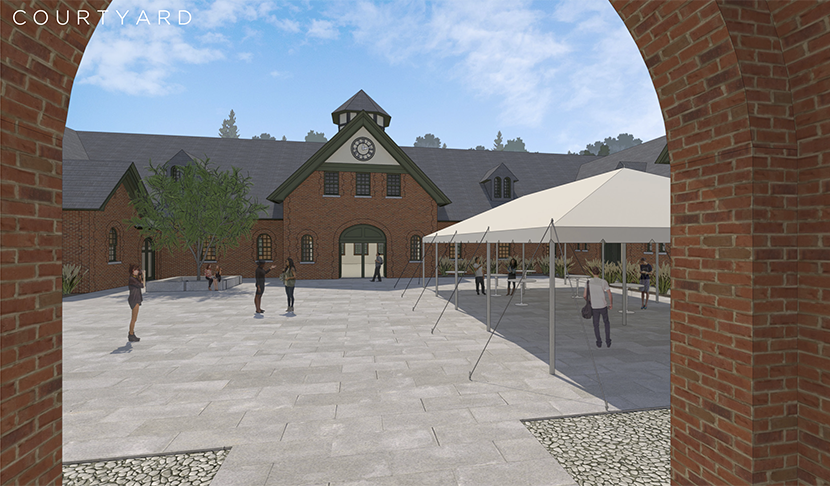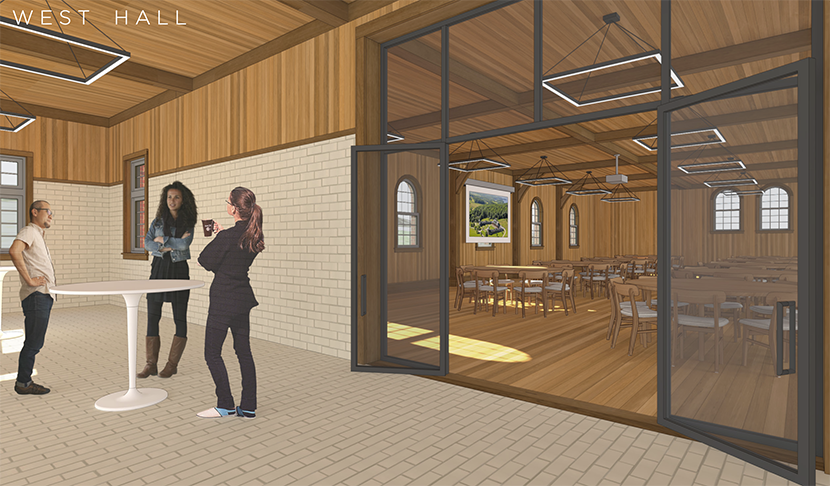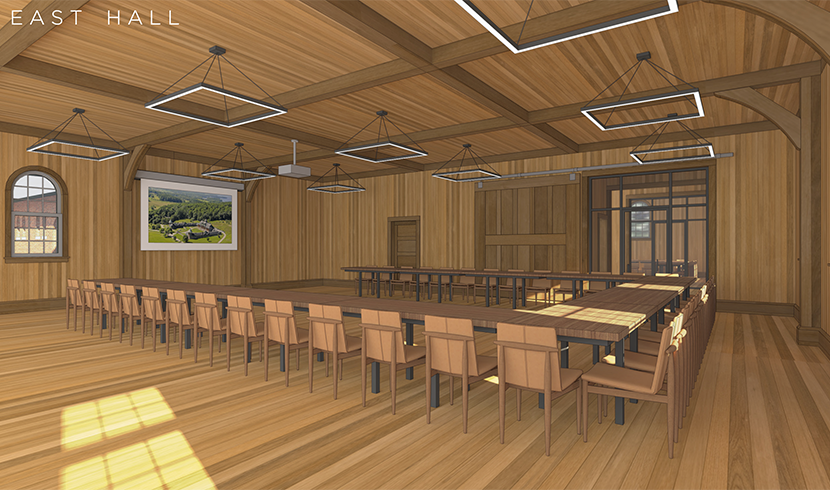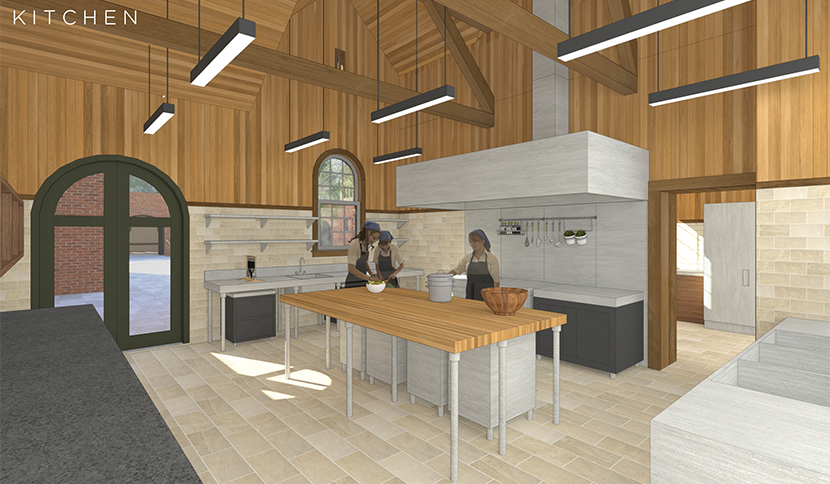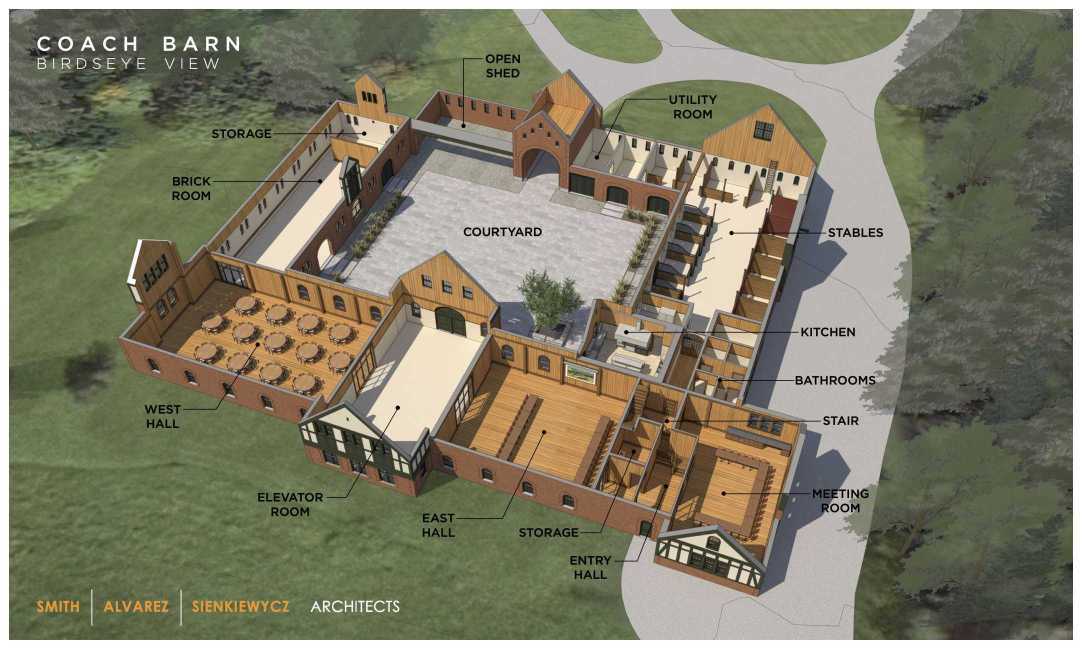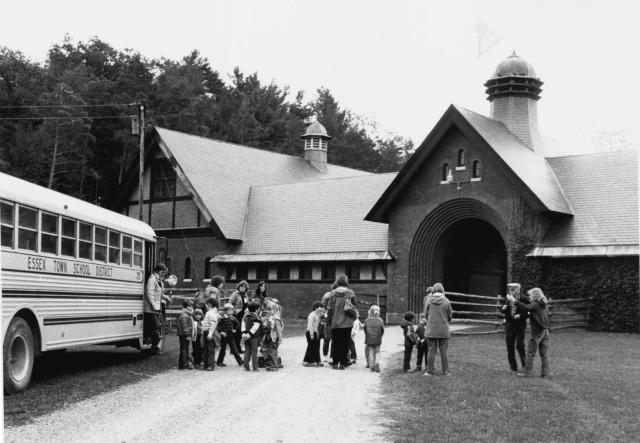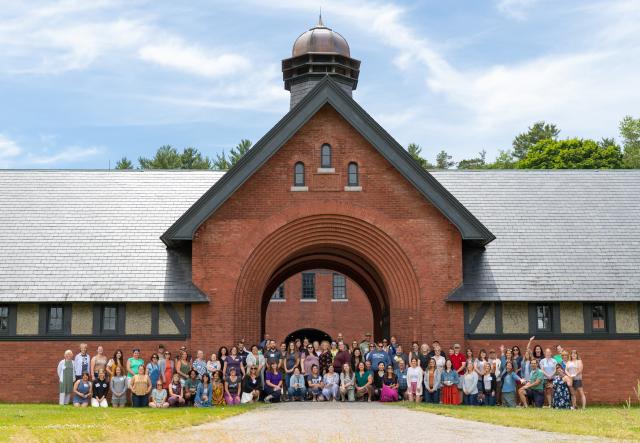The Coach Barn Rehabilitation Project
The historic Coach Barn will soon be undergoing a transformation. Already a gem in the fabric of Shelburne Farms, the renovated barn will be an even more inspirational place for gathering and learning. It’s just been waiting for its moment to fully shine!
With its spacious halls, large enclosed courtyard, and sweeping lake-side lawns, the Coach Barn has long served the nonprofit as a space to convene educators and gather our community. It is, after all, home to the Institute for Sustainable Schools, which serves more than 1,500 educators a year through nationally recognized programs like the Farm to School Institute and our new Education for Sustainability (EFS) Graduate Certificate Program with UVM.
Our community celebrates here, too, at events like the Vermont Fresh Network dinner, the Rotary annual fundraiser, and the Waldorf School year-end party to name just a few.
Yet despite decades of use, the Coach Barn has had few improvements over the years. It’s been functional and beautiful, but its electrical, lighting, water, and heating systems are all overdue for upgrades. Its fire suppression and detection system needs an upgrade, too, especially in the wake of Dairy Barn fire in 2016. The Coach Barn will be the last major barn to be outfitted against fire.
We’ll also be addressing the barn’s “food system.” Few experiences bring people together like preparing and serving food, and delicious farm-fresh food has been foundational to the Coach Barn experience throughout its history as a gathering space. To strengthen the ties to the working farm landscape and between our learners, the transformed barn will include a new kitchen.
All of these systems are essential to the success of the Coach Barn. And in a world that’s warming, energy efficiency is essential, too. So after we extract the Coach Barn’s aging boiler, we’re planning on a radically different solution to heating and cooling the building: a ground-source (geothermal) heat pump system that is fossil-fuel free. (More below)
To give you a fuller picture of the Coach Barn's transformation, here are schematics of the project from our partners at SAS Architects. For a full immersion, watch the virtual tour of the future building.
Even with all the wonderful changes, the Coach Barn will remain the Coach Barn. The historic structure—integral to Shelburne Farms’ National Historic Landmark designation—will continue to anchor the viewscape south of the Inn, and welcome guests with the warmth of its wood interior. The marrying of the old and the innovative makes this project signature Shelburne Farms.
Work on the Coach Barn begins in August 2024, but with an estimated $10 million price tag, bringing this vision to life won’t just happen. In 2022, a $500,000 Save America’s Treasure grant from the National Park Service got the ball rolling, along with several generous gifts from individuals and foundations, and we now have a challenge!
The Robert W. Wilson Trust is challenging us to raise the funds needed for the Coach Barn project, which is part of the larger Campaign for Shelburne Farms. As of July 2024, thanks to generous support from hundreds of donors, we have just over $3 million to raise towards our Campaign goal of $50 million. If you can help us reach that goal by December 31, 2024, the Trust will contribute an additional $5 million to fully fund the Coach Barn rehabilitation project.
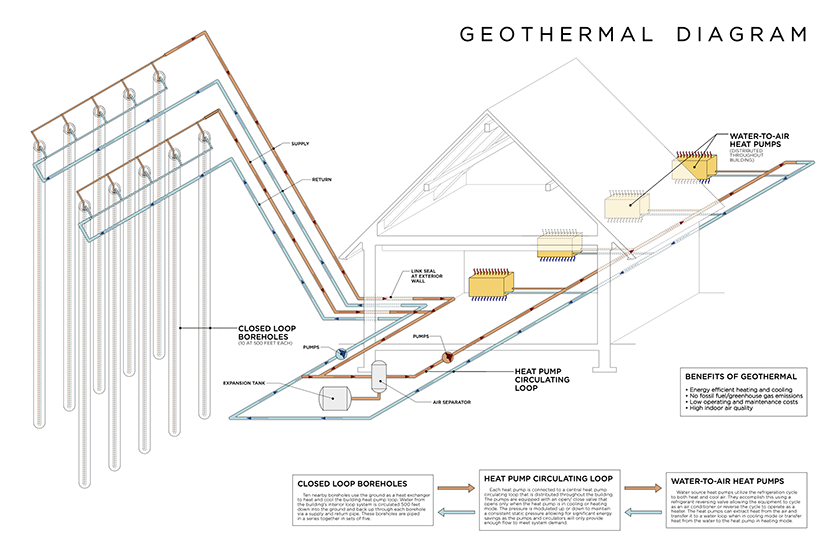
New Ground-Source Heat Pump System
BENEFITS:
• Coach Barn can be used year-round.
• It is very energy efficient
• It is mostly carbon-neutral (Vermont electricity is 90% carbon-free)
• After higher upfront costs, it has low operating and maintenance costs
• It yields high indoor air quality

